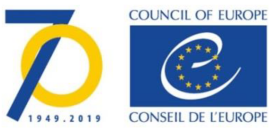Media Pluralism – how can we deliver?

On the occasion of the European Week of Media Literacy, the Council of Europe and Reporters Without Borders invite to a conference:
Media Pluralism – how can we deliver?
We will discuss both academic and regulatory angles to look at media literacy and provide a bridge between the two. What are the applicable standards and where are the main challenges for their implementation? How can evidence based research better inform policy making in this domain? What roles do policymakers, regulators and scholars play?
The conference will provide an insight into updated standards on media pluralism, ownership and literacy included in the Council of Europe’s Recommendation CM/Rec(2018)1 on media pluralism and transparency of media ownership, and ideas for embedding those standards into practice.
Reaching beyond Europe, the conference will focus on the Southern Neighbourhood in particular and provide an ‘East-meets-West’ platform for exchange.
Venue: Strasbourg, Council of Europe, Agora building, Room G02. We'll be working in English and French with translation available. Dates: 19 March – upon invitation, 20 March – free entry.
19-20 March 2019 Save the date and see you in Strasbourg!




